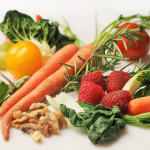Antioxidants are one of the holy grails for marketers of a wide variety of food and supplemental products. For many, the term "antioxidant" has become synonymous through repetition with better health and the prevention of a myriad of ailments. In essence, antioxidants have been misconceived to be a magic bullet for health and longevity.
Nutritional Supplements
We have written numerous times about the folly of the supplements industry, the latest incident (see the original report by the Times Anahad O'Connor) where GNC, Target, Walmart and Walgreens were forced to pull supplement products from their shelves by New York state attorney general, Eric T. Schneiderman.
It should be no surprise to anyone who reads our Dispatch that we at ACSH are not fans of dietary supplements. Our Dr. Josh Bloom has written repeatedly
Two recent studies on the health benefits associated with two commonly-used dietary supplements further add to our message here at ACSH that complementary products do very little to protect us from any types of disease, and supply further
Missed this week's health news? We're getting you caught up with three stories you can't ignore: Surprising binge drinking numbers among teens, new study says dietary supplements really don't work, and why heart attacks in women often times don't point to chest symptoms.
An excerpt from Do You Believe in Magic, by ACSH trustee Dr. Paul Offit was published in the latest issue of The Atlantic magazine.
Endocrine-disruptor we at ACSH have been fighting an uphill battle against this pseudo-scientific term for years.
According to radical environmental groups and others with similar anti-chemical agendas, we are being bathed in these things and they are doing serious, chronic harm to all of us.
* The Top Diets How Do They Rate?
* Nutritional Supplements Help or Hype?
* The Food Pyramid Why It's The Healthiest and Easiest Way to Eat
Available from Hunter House Publishers, Alameda, CA: order toll-free at 1-800-266-5592
or from Amazon.com
Americans are embracing dietary supplements like never before. Last year we spent over $5 billion on compounds ranging from ordinary multivitamins to exotic herbal products. We hope they'll prevent or cure our ills, put us to sleep or make us alert, turn us into powerful athletes or help us shed pounds without decreasing our caloric intake or exercising more.
Since many supplements are touted as "natural," we assume that they must be safe. But swallowing all these pills and powders has resulted in some tragedies:
